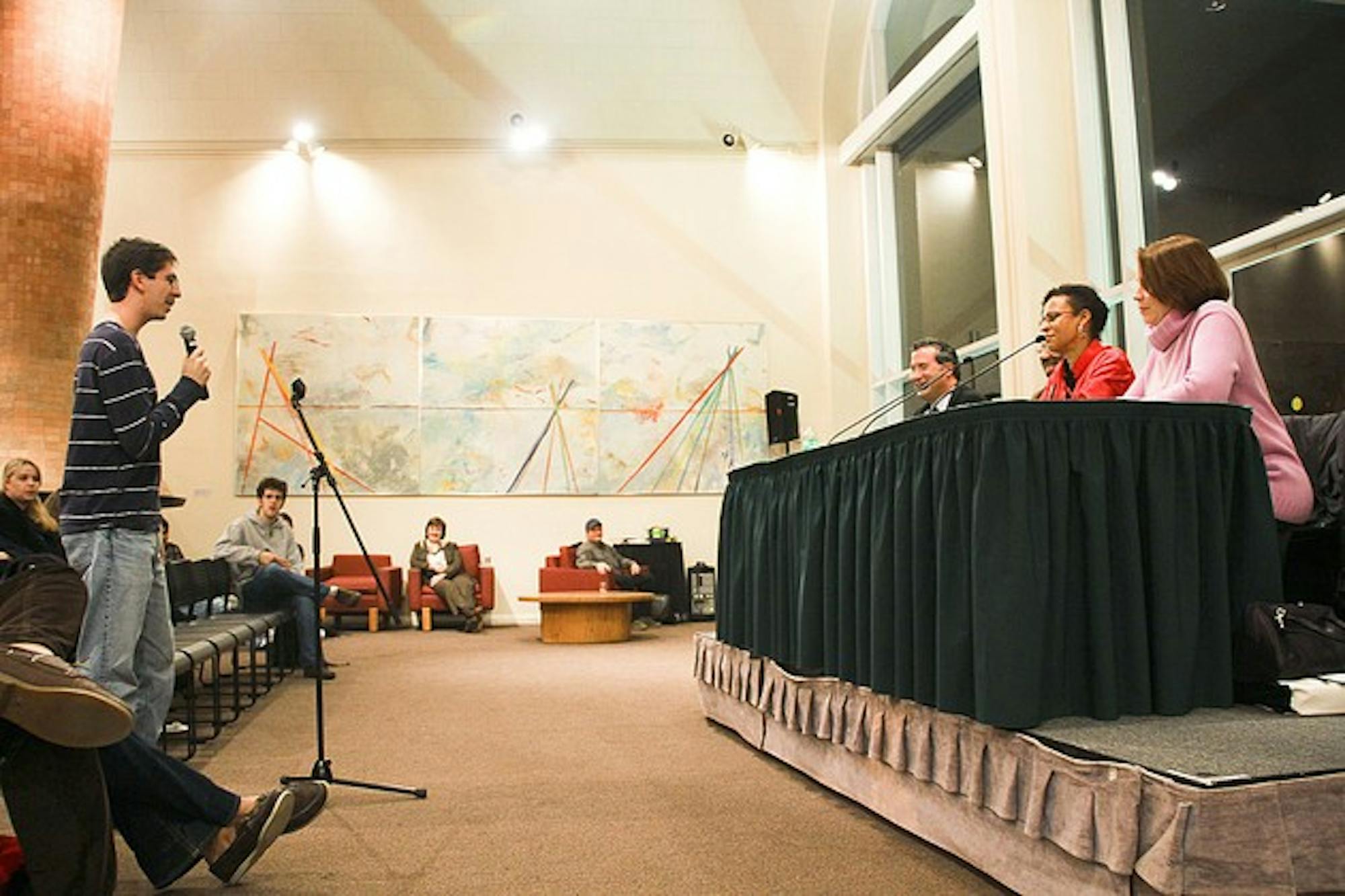Meetings with the visiting committee included "great conversations," although she did not want to speculate about the content of the future report, Folt said in an interview.
"We are not going to be able to say what [the committee is] focusing on yet, because we really don't know," Folt said. "This really is their report, and we are to react to this report. I want to respect the process."
The process included meetings with "a wide range of people" at the College during which the committee asked questions to learn more about the College, Folt said.
The visiting committee made note of the high attendance levels at the various meetings compared to at other institutions, Folt said.
The committee held a discussion with faculty and an open forum with students, as well as meetings with smaller subsets within these groups including the executives of Student Assembly and department chairs.
At the meeting with department chairs, the committee posed questions primarily about faculty governance and the extent to which "the system of faculty governance works and does not work at Dartmouth," according to religion department chair Susan Ackerman.
Many of the committee's questions were asked in hopes of illuminating Dartmouth's "idiosyncrasies" and explaining why Dartmouth works the way it does, Ackerman said. For example, the chairs described how the quarter system and the high number of off-campus programs might result in the chair of a particular department being away from Hanover for a significant length of time during the academic year, Ackerman said.
Many of the department chairs' comments were "simply explanatory," Ackerman said.
"It's not the faculty's place to tell the review committee what the solutions are," Ackerman said. "What we ask of the review committee is to look at us and give us some suggestions."
Student Assembly leaders focused on explaining to the committee how student governance at the College works, Student Body President Eric Tanner '11 said. None of the executives expressed "major concerns" at the meeting about the Assembly, Tanner said.
Tanner said that in the reaccreditation process, "the focus is on academics, not necessarily whether or not we have enough alternative social spaces."
Two topics that drew considerable attention at the student meeting on Monday were Greek life and student health care. Several students expressed concerns about the quality of care at Dick's House and issues related to the drinking culture at Dartmouth.
"People on this campus are very self-aware about things we can do better," Tanner said.
Tanner estimated that 70 students attended Monday's forum.
Prior to the arrival of the visiting committee, Dartmouth completed a self-study, which is now available on Dartmouth's website. The College reviewed itself based on 11 standards identified by NEASC, including academic programs, student services, faculty and finances, according to Folt. A steering committee, chaired by Folt, was responsible for leading the self-study.
Committees composed of faculty and staff were established for each of the 11 standards, according to Folt. In total, over 100 people were involved with the self-study over an 18 month period, according to Dartmouth's website.
The self-study report describes several improvements at the College over the last 10 years, including the construction of new buildings, development of the three professional schools, diversification of the faculty and reductions in student-to-faculty ratios. The report also describes areas where the College has seen development, but will continue working toward further improvement, including student satisfaction with advising and opportunities for leadership opportunities for students.
"It would be very surprising to me if there was a major area that we needed to address that didn't come up in that study," Folt said.
When Dartmouth last completed reaccreditation, one recommendation from the NEASC suggested was that the College focus on improving systems for self assessment, according to Folt. In response to this recommendation, the College created an online system for students to evaluate their courses, Folt said.
The details of the course evaluation system are included in the self-study report.
The visiting committee consisted of nine individuals from other institutions. In an e-mail to The Dartmouth, committee chair Anthony Marx, the president of Amherst College, said he could not comment on this because Dartmouth's reaccreditation process is still underway.
Dartmouth participates in the reaccreditation process approximately every 10 years. The College has never failed to be reaccredited.
"The accreditation process provides an opportunity for self-reflection and external feedback to allow Dartmouth to continually improve," according to Dartmouth's website.




